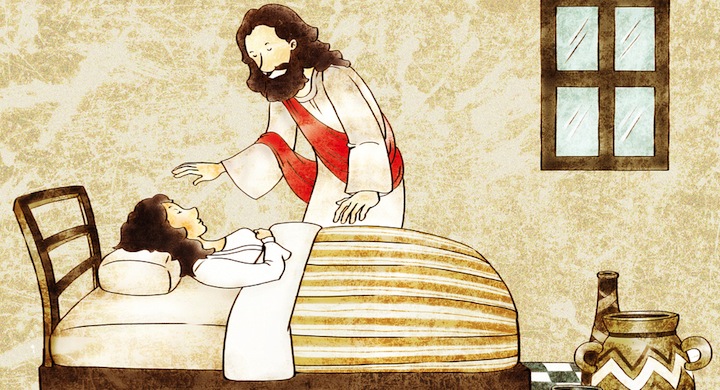In December I began working for a non-profit law firm that provides free assistance to vulnerable Tennesseans trying to access affordable health care. One of our current challenges is fighting for the passage of Governor Bill Haslam’s health care plan called Insure Tennessee. This plan would provide affordable health coverage to more than 280, 000 people in our state who currently have no option for health insurance. It would bring over one billion Tennessee tax dollars back to our state every year, not costing the taxpayer a single extra dime, and saving 20, 000 jobs by helping our more than 40 at-risk hospitals stay open. We have already had six hospitals close due to the overwhelming costs of uncompensated care. The Governor proposed a plan that would fix this. But two legislative sessions later, our legislators still have not passed it.
I care about Insure Tennessee because I’m a Tennessean and a Christian. Jesus said he came to proclaim good news to the poor. I believe this plan would be just that.
Recently, Bruce Parks, a 50 year old with major heart issues and no health insurance, met with his state representative to ask him to support Insure Tennessee. His legislator expressed his sympathy but said he felt Tennesseans should be required to work at least part-time in order to get health coverage. The more I’ve paid attention to the news around Insure Tennessee, the more it seems this argument appears from legislators: people must work to deserve health care. Never mind the fact that Bruce has worked his entire life until a massive heart attack almost killed him and reduced his heart to 15% capacity. Doctors tell him, without a pacemaker, he may die if he returned to work. But without insurance, he can’t get that pacemaker. The cycle is vicious, while the legislators remain indifferent.
Since a great many of these same legislators claim to be Christians–believers in that good news Jesus came to proclaim to the poor–I want to rewrite two familiar gospel stories to reflect these legislators’ apparent values. I wonder how many people would follow Jesus if he had behaved like this.
Luke 18:35-43
As Jesus approached Jericho, a blind man was sitting by the roadside begging. When he heard the crowd going by, he asked what was happening. They told him, “Jesus of Nazareth is passing by.
He called out, “Jesus, Son of David, have mercy on me!”
Those who led the way rebuked him and told him to be quiet, but he shouted all the more, “Son of David, have mercy on me!”
Jesus stopped and ordered the man to be brought to him. When he came near, Jesus asked him, “What do you want me to do for you?”
“Lord, I want to see, ” he replied.
Jesus said to him, “I am sure, but should you not have considered this before you began begging? Instead of spending your life on the side of the road asking for money, why not go to the businesses throughout Jericho and ask for work?”
“Lord, ” the man began, shocked at Jesus’s response, “I would work if I were well, but employers believe me unable to perform any useful labor, for I am blind.”
Jesus began to turn away. “I am sorry, my hands are tied. In order to heal you, I need you to work. Otherwise, you are just receiving handouts, and I am enabling laziness.”
Jesus moved ahead of the crowd, while the blind man sat in silence, stunned, hoping never to encounter Jesus of Nazareth again.
Luke 6:6-10
[One] Sabbath Jesus went into the synagogue and was teaching, and a man was there whose right hand was shriveled. The Pharisees and the teachers of the law were looking for a reason to accuse Jesus, so they watched him closely to see if he would heal on the Sabbath. Jesus knew what they were thinking and said to the man with the shriveled hand, “Get up and stand in front of everyone.” So he got up and stood there.
Then Jesus said to them, “I ask you, which is lawful on the Sabbath: to do good or to do evil, to save life or to destroy it?”
He looked around at them all, and then said to the man, “Stretch out your hand.” He did so. Then Jesus said, “Are you currently working?”
The man with the shriveled hand looked up in surprise. “No, ” he said, “no one will hire me with my hand shriveled in this way.”
So Jesus asked, “When was your last job?” The man replied that it had been some years since he could work. Then Jesus turned to the Pharisees and all those around and said, “Truly I say to you, unless a man works, he shall not be healed. The man who labors shall earn his due. The man who does not must go without.”
The man with the shriveled hand recoiled from Jesus. “How can I work? No one will hire me with this hand! If you healed me, I could return to the fields or learn a new trade.” Some who had gathered began nodding in understanding, recognizing the poor circumstance of the man. Without healing, he could not work, but without work, he would not be healed.
Yet Jesus remained unmoved. “If I were to heal you now, would not word spread? Would not the multitudes begin ceasing their labor, having no reason to continue working when I might heal their ailments without condition? Will the masses not take advantage of my power? Instead I say to you, find means by which to earn some manner of living, and then I will consider restoring your hand to you.”
The Pharisees and the teachers of the law were joyful and began to discuss with one another how they might include Jesus among their ranks.
I wonder how many people would follow this Jesus. I know I wouldn’t.

